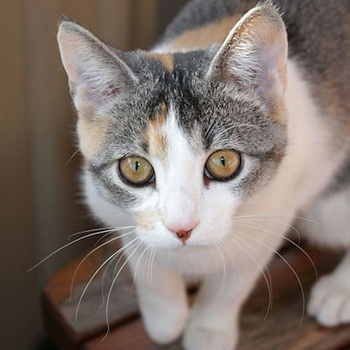Senior Cats
“Age is not a disease.” Older or senior cats go through many of the same health changes as people do, e.g., weight loss or gain, change in appetite and behavior, inappropriate elimination, decrease in vision or hearing, hair loss, persistent coughing or gagging, joint pain, and blood circulatory changes. Alert your veterinarian to these or other changes in your cat’s health.The gradual onset of health problems in an apparently healthy cat often goes unnoticed. Once symptoms appear, the disease may be in an advanced stage and it is difficult as well as costly to diagnose and treat. Therefore it becomes very important for cats 7 years and older to receive more regular exams and blood tests to check their health status.Senior CatsCats age faster than humans.
Taking your cat to the veterinarian once a year is like you going to the doctor once every 7 years. Annual check ups are a must once a year,
Bi-annual check ups are recommended
Older cats can be classified as:
Mature or Middle aged = 7-10 years
Senior age = 10-15 years
Geriatric age = 15+ years
In seniors, prevention and early detection lead to early intervention that leads to improved treatment success.
CAT AGE ANALOGY CHART
Feline Age
Human Age
1 15
3 28
7 44
10 56
14 72
20 96
HEALTH CONDITIONS SEEN IN OLDER CATS
The most commonly detected health conditions seen are:
33% Obesity 33% Renal disease
11% Hyperthyroidism 4% Diabetes
If you have a cat older than 7 years, please schedule an appointment for:
A Physical Exam, Blood Testing,
Chest X-Ray, Urinalysis and a Fecal Exam.





